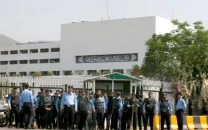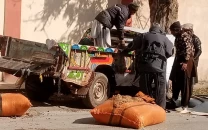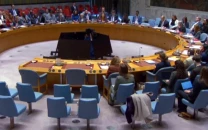Will democracy survive?
The tragedy is that public perception of people who pull the strings is that they have been making a mess of things.

Will democracy survive?
Quick to recognise a stirring in the political wind, his main contribution to politics was to provide a focal point towards which other dissidents in the country could gravitate. Unfortunately, he and his colleagues, all of whom belonged to the landed gentry, didn’t really achieve very much. But they at least kept the spirit of democracy alive.
However, frequent changes in the constitution, ushered in by a clutch of military dictators, completely destroyed the state structure and the fabric of government in Pakistan. The civil elite and the industrial class invariably benefited from such changes.
Across the eastern border, things were very different. India was fortunate to have had leaders like Mahatma Gandhi, Maulana Azad and Pandit Nehru. It was Pandit Nehru who, in 1953, introduced his land reforms which played a key role in creating a proper democratic state. In Pakistan, the agricultural sector is apparently sacrosanct and governments wouldn’t dream of taxing local kulaks. And so the country continues to be saddled with feudal and tribal systems where jirgas and panchayats exercise their own judicial system.
The feudal class, irrespective of the party it supports, continues to hinder progress in this country. It fields uneducated, unqualified candidates who are totally incapable of handling problems that beset the nation and who are elected because they happen to belong to the right class and the right families. This class has yet to produce a mayor in Karachi with the vision and sense of commitment of that workaholic, Mustafa Kamal.
To give the reader an idea of the latent power the military exerts in this country, during the period 1951 to 1958, when a democracy of sorts existed, India had one prime minister and several army chiefs while Pakistan had one army chief and several prime ministers. Pakistan now has a democracy and there is a good chance that the present government will complete its term, provided the prime minister stops sparring with the judiciary.
The tragedy, however, is that public perception of the people who pull the strings that make the marionettes dance is that they have been making a mess of things. Excessive borrowing from the state bank, the inability to curb birth rates and to provide potable drinking water in the villages, the belief that only the salaried class is paying taxes and the infinite reluctance to tax the agriculturists will eventually sink the PPP government, unless it takes drastic action and soon. A democracy was ushered in at great sacrifice. It’s up to the present government to ensure its survival. We won’t get another chance.
Published in The Express Tribune, October 21st, 2010.


















COMMENTS
Comments are moderated and generally will be posted if they are on-topic and not abusive.
For more information, please see our Comments FAQ